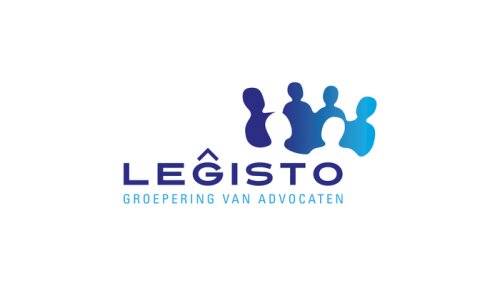Best Public-Private Partnerships (PPP) Lawyers in Mol
Share your needs with us, get contacted by law firms.
Free. Takes 2 min.
List of the best lawyers in Mol, Belgium
About Public-Private Partnerships (PPP) Law in Mol, Belgium
Public-Private Partnerships (PPP) are collaborative projects between government entities and private sector companies to deliver public services or infrastructure. In Mol, Belgium, PPPs have become an important method for developing local projects such as transportation networks, public buildings, and environmental initiatives. The legal framework governing PPPs in Belgium aligns with European Union directives but also includes additional local and regional requirements. PPPs offer an opportunity to leverage the expertise and resources of both public and private parties to achieve community goals while sharing risks and benefits.
Why You May Need a Lawyer
Engaging in a PPP project often involves complex legal, financial, and regulatory considerations. You may need a lawyer if you are:
- A business considering or bidding for a PPP contract in Mol
- A local authority or public agency structuring a PPP project
- A stakeholder seeking to resolve disputes or interpret contracts
- Involved in drafting or negotiating detailed contracts and agreements
- Unsure about procurement rules or due diligence requirements
- Concerned about risk allocation, financing arrangements, or regulatory compliance
- Subject to audits or public scrutiny regarding transparency or anti-corruption measures
Legal guidance ensures you understand your obligations and rights, helping you avoid costly mistakes and comply with all applicable laws in Mol.
Local Laws Overview
Mol, located in Flanders, Belgium, operates under Belgian federal law as well as Flemish regional regulations. Key aspects relevant to PPPs in Mol include:
- Public Procurement Law: All PPPs are subject to strict public procurement rules which require transparent and competitive selection procedures.
- EU Compliance: Belgian PPPs must also comply with EU directives on public procurement, competition, and state aid.
- Contractual Structure: PPP contracts often take the form of Design-Build-Finance-Operate (DBFO) or similar long-term agreements specifying responsibilities, payment mechanisms, and risk sharing.
- Permits and Environmental Considerations: Local zoning, planning, and environmental permits are necessary for many PPP projects. Compliance with both local and European environmental laws is crucial.
- Supervision and Accountability: Oversight is provided by local municipal bodies and Flemish authorities to ensure public interests are protected and standards are maintained.
These laws are detailed and can be updated frequently to reflect new policies at the European, national, or regional level.
Frequently Asked Questions
What is a Public-Private Partnership (PPP)?
A PPP is a cooperative arrangement where a public body and a private company share responsibilities, resources, risks, and rewards in delivering a public project or service.
Are PPPs common in Mol, Belgium?
Yes, PPPs are increasingly used in Mol and throughout Belgium for large infrastructure projects, urban development, and public services.
Who regulates PPPs in Mol?
PPPs are governed by Belgian federal law, Flemish regional law, relevant EU directives, and are overseen by local and regional authorities.
What types of projects use PPPs in Mol?
Typical PPP projects include transportation infrastructure, schools, hospitals, social housing, sustainable energy projects, and water management facilities.
Do private investors assume all risks in a PPP?
No, risks are typically allocated between public and private partners based on their ability to manage those risks. The exact distribution is negotiated and detailed in the contract.
How are PPP contracts awarded?
PPP contracts in Mol must follow competitive public procurement procedures to ensure transparency, fairness, and best value for money.
Is special financing required for PPP projects?
Yes, PPPs often involve complex financing structures that may include private capital, bank loans, government grants, or EU funding.
What if a dispute arises between partners?
PPP contracts typically include dispute resolution procedures, but litigation in Belgian courts or arbitration may be necessary if informal resolution fails.
Are there transparency or anti-corruption requirements?
Yes, Belgian and EU laws impose strict rules to ensure transparency, prevent corruption, and promote accountability in PPP projects.
How can I find out about new PPP opportunities in Mol?
Notices for new PPP projects are published on public procurement platforms, municipal websites, or the Belgian Official Journal.
Additional Resources
The following organizations and resources can provide further information or assistance regarding PPPs in Mol or Belgium:
- Mol Municipal Government - Department for Infrastructure and Urban Planning
- The Flemish PPP Knowledge Centre (Kenniscentrum PPS Vlaanderen)
- Belgian Federal Public Service for Policy and Support (FOD BOSA)
- European Investment Bank (EIB) Advisory Services for PPPs
- Professional legal associations in Belgium, such as the Orde van Vlaamse Balies
- Chamber of Commerce for the Kempen region
Next Steps
If you require legal advice or assistance regarding a Public-Private Partnership in Mol, consider the following steps:
- Identify your specific legal needs or questions about the PPP process
- Consult with a lawyer or law firm experienced in PPP projects in Belgium and familiar with local regulations in Mol
- Gather all relevant documents, including contracts, procurement notices, correspondence, and project plans
- Contact local authorities or PPP knowledge centers for preliminary guidance or referrals
- If you are a business, ensure you understand the tendering process and necessary pre-qualification steps before submitting bids
- Stay informed of legislative changes that may impact your PPP project
Early legal intervention can streamline your involvement in PPP projects, safeguard your interests, and help achieve successful and compliant outcomes.
Lawzana helps you find the best lawyers and law firms in Mol through a curated and pre-screened list of qualified legal professionals. Our platform offers rankings and detailed profiles of attorneys and law firms, allowing you to compare based on practice areas, including Public-Private Partnerships (PPP), experience, and client feedback.
Each profile includes a description of the firm's areas of practice, client reviews, team members and partners, year of establishment, spoken languages, office locations, contact information, social media presence, and any published articles or resources. Most firms on our platform speak English and are experienced in both local and international legal matters.
Get a quote from top-rated law firms in Mol, Belgium — quickly, securely, and without unnecessary hassle.
Disclaimer:
The information provided on this page is for general informational purposes only and does not constitute legal advice. While we strive to ensure the accuracy and relevance of the content, legal information may change over time, and interpretations of the law can vary. You should always consult with a qualified legal professional for advice specific to your situation.
We disclaim all liability for actions taken or not taken based on the content of this page. If you believe any information is incorrect or outdated, please contact us, and we will review and update it where appropriate.









